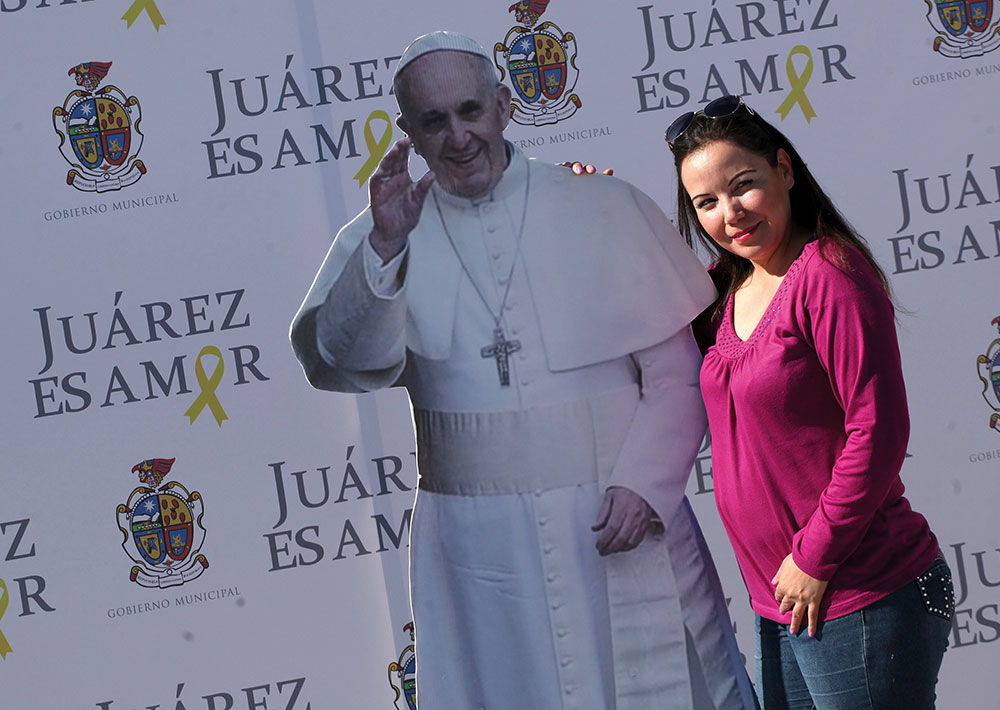Exactly one year ago, in January 2015, on board the plane that was taking him back to Rome after a visit to the Philippines, Pope Francis did not have on his agenda to travel to Mexico; in any case, as he explained, if he did, it would be on a trip that included the capital of that country, as this would allow him to attend the Basilica of Guadalupe.
To some extent, the statements he himself later made in March 2015 made it understandable to think that he would definitely not be able to move to Mexico, given that "I have the feeling that my pontificate will be brief... Four or five years, I don't know, or two or three. Well, two have already passed". Finally, in December 2015, Francis himself announced and detailed his visit to Mexico, which allowed Mexican columnist Raymundo Riva Palacio to assure that. "the Pope 'self-invited' himself to Mexico".
In fact, it is claimed that it is "a trip that took the Mexican government by surprise", since it was not part of the diplomatic agenda between the Holy See and the government of Enrique Peña Nieto, the Mexican president who has been most obsequious towards the Church and the papacy.
To support the assertion of the papal "self-invitation", they resort to political discrepancies, but also to the direct intervention of Mexican Jesuit priests who expressly met privately with the Pope during his stay in Cuba, to insist on the convenience of planning a visit to Mexico.
Hence, for the country's political analysts, the express inclusion of the town of San Cristobal las Casas in Francis' tour of Mexico has not gone unnoticed, as well as the intense efforts to have him visit the tomb of Bishop Samuel Ruiz and pay him a kind of homage.
The figure of the bishop was shrouded in controversy after the first day of January 1994, when a guerrilla group trained in Chiapas declared war on the Mexican government and began a series of armed attacks. He was directly linked to the promoters of these violent acts.
It is also true that in the diocese, both during the time of Bishop Ruiz and later, pastoral experiments have been carried out that at the time were officially suspended by the Holy See for their doctrinal inaccuracies.
San Cristobal de las Casas is located in the State of Chiapas, one of the poorest in Mexico. And, like the other cities that Pope Francis has listed in his agenda, it presents the face of the lack of development and widespread poverty, especially in communities where the lack of agro-industries has not allowed the inhabitants to reach higher levels of wellbeing.
Pope Francis will indeed visit San Cristobal de las Casas, Mexico City, Morelia and Ciudad Juarez. Morelia, with a higher degree of industrialization, has been affected by the violence unleashed by drug gangs or cartels that grew under the protection of corruption and the connivance of politicians and businessmen in the area. It is a locality with high religious fervor, despite the onslaught of the revolutionary governments that harassed the Church for decades.
As for Ciudad Juarez, it is an attractive locality because of the large number of assembly plants that employ men and women who come from all over the country in search of a higher income. Violence has been highlighted there both by drug trafficking, as well as by the deaths of women, many of whom were single mothers who had gone to work in the "maquiladoras" installed there by foreign consortiums interested in supplying U.S. firms with regularity and precision.
As for the Federal District, one of the most populated cities in the world, it maintains evident and profound contrasts. In spite of all the problems and difficulties, all of them, like most of Mexico, and unlike in Europe, register a significant religiosity that explains to a great extent the hope under which people live even in the most underprivileged areas.
The panorama in Mexico is not different from that of John Paul II or Benedict XVl, but what is striking is that for the first time a Pope arrives in an election year.
In fact, all political actors in the country had agreed in all papal visits to keep them out of the elections, with the clear purpose of not trying to take advantage of them by any of the parties or candidates, for their own benefit. Now, however, the opposite will happen. What will happen? We will have to wait.
Mexico City











